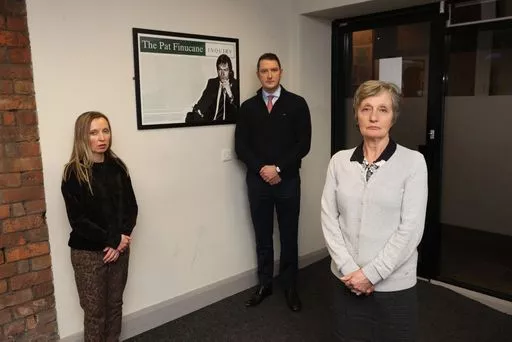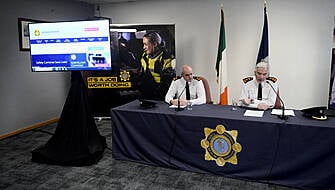Taoiseach Micheál Martin has said he was disappointed that the British government has not committed to holding a public inquiry into the murder of Belfast solicitor Pat Finucane, as agreed between the British and Irish governments in 2001.
The Taoiseach met with Pat’s widow, Geraldine Finucane, and her son John last week.
Following their meeting, he wrote to UK Prime Minister Boris Johnson about the case.
He also spoke with the Prime Minister by phone last Friday, to 'set out to him directly the compelling case for holding a public inquiry'.
Mr Finucane, a 39-year-old solicitor who represented republican and loyalist paramilitaries during the Troubles, was shot dead in his family home in north Belfast in February 1989 by the Ulster Defence Association (UDA) in an attack found to have involved collusion with the state.
Mr Finucane’s widow Geraldine and the couple’s three children have been campaigning for decades for a public inquiry to establish the extent of security force involvement.
Supreme Court
Last year, the Supreme Court said all previous examinations of the death had not been compliant with human rights standards.
The Northern Ireland Secretary explained how a number of issues were referred to the police ombudsman in 2016, noting: “In addition, the legacy investigation branch of the PSNI informed my department on November 2 2020 that Patrick Finucane’s case is shortly due to undergo a process of review in accordance with the priorities set out in their case sequencing model.
“The chief constable confirmed this is expected to begin early in the new year. To be clear, this is a purely operational police matter. The UK Government, rightly, has no role whatsoever in determining how or when the police deal with their outstanding legacy caseload.
“However, the fact a decision on a police review is due shortly is an important development and was a factor in determining the next steps in this case. Critically, a review would consider whether further investigative steps could be taken in this case and whether the PSNI should do so.”
Mr Lewis added any review would be conducted independently of the PSNI.

He also said: “I want to be clear, I’m not taking the possibility of a public inquiry off the table at this stage – it is important we allow the PSNI and police ombudsman processes to move forward and that we avoid the risk of prejudicing any emerging conclusions from their work.”
Mr Martin said: “The decision today will come as a further blow to Geraldine and her family, who have been pursuing truth and justice for three decades with great dignity.”
He added that the Government would reflect on the steps outlined by the British government today, but that it remained strongly of the view that a public inquiry was needed.







